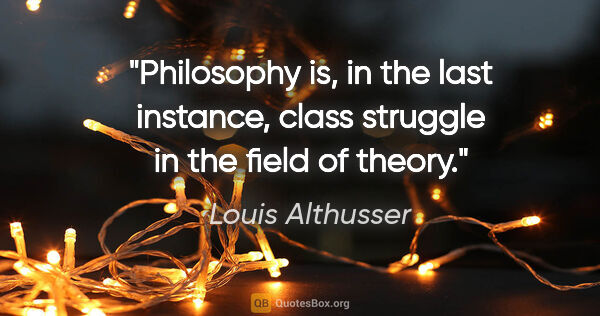Lasting Quotes (page 46)
Elinor saw, and pitied her for, the neglect of abilities which education might have rendered so respectable; but she saw, with less tenderness of feeling, the thorough want of delicacy, of rectitude, and integrity of mind, which her attentions, her assiduities, her flatteries at the Park betrayed; and she could have no lasting satisfaction in the company of a person who joined insincerity with ignorance; whose want of instruction prevented their meeting in conversation on terms of equality,...
Jane Austen
Blot your misdeeds out (if you are particularly conscientious), by a good deed, as soon as you can; just as we did a correct sum at school on the slate, where an incorrect one was only half rubbed out. It was better than wetting our sponge with our tears; both less loss of time where tears had to be waited for, and a better effect at last.
Elizabeth Gaskell
It is a little disappointing to expect a detailed report on your work and to receive instead such a vague rhapsody as your last letter. You say you are "delirious with joy" because the European humans have started another of their wars. I see very well what has happened to you. You are not delirious; you are only drunk.
C. S. Lewis

In a thousand years," Alessandro said, "this incident will be remembered. By then, of course, we will have become angels, devils, or a dragon that breathes fire...but we have given this rock a story that will be passed on."What good is that?"It isn't to our advantage, if that's what you mean. However, it's pleasurable to cast a line into the future, no matter how tenuously. You never know, the line may be unbroken all the way to the last judgment.
Mark Helprin
O brother, the gods were good to you. Sleep, and be glad while the worldendures. Be well content as the years wearthrough; Give thanks for life, and the loves andlures; Give thanks for life, O brother, anddeath, For the sweet last sound of her feet, herbreath, For gifts she gave you, gracious andfew, Tears and kisses, that lady of yours.
Algernon Charles Swinburne
A few moments after he found himself on the stage amid the garish gas and the dim scenery, acting before the innumerable faces of the void. It surprised him to see that the play which he had known at rehearsals for a disjointed lifeless thing had suddenly assumed a life of its own. It seemed now to play itself, he and his fellow actors aiding it with their parts. When the curtain fell on the last scene he heard the void filled with applause and, through a rift in a side scene, saw the simple...
James Joyce
Presently comfort came to him, and he thought the she had always given him of her strength though he had never quite realised it until now.Glory had passed him by; fame too perhaps would not endure; it might well be that the incalculable goddess would decree ill fame as his due. Perhaps there might not be included in his epitah the one tribute to his knighthood the he knew he deserved "Ii fut toujours bon et loyal chevalier" (He was always good and loyal knight) But whatever the shadowed...
Anya Seton
Matisse makes a drawing, then he makes a copy of it. He copies it five times, ten times, always clarifying the line. He’s convinced that the last, the most stripped down, is the best, the purest, the definitive one; and in fact, most of the time, it was the first. In drawing, nothing is better than the first attempt.
Pablo Picasso
the mystic must be steadily told,—All that you say is just as true without the tedious use of that symbol as with it. Let us have a little algebra, instead of this trite rhetoric,—universal signs, instead of these village symbols,—and we shall both be gainers. The history of hierarchies seems to show that all religious error consisted in making the symbol too stark and solid, and was at last nothing but an excess of the organ of language.
Ralph Waldo Emerson

In the controversy that followed the prince's remarks, his most staunch defender was professor John Taylor, a scholar whose work I had last noticed when he gave good reviews to the psychokinetic (or whatever) capacities of the Israeli conjuror and fraud Uri Geller. The heir to the throne seems to possess the ability to surround himself—perhaps by some mysterious ultramagnetic force?—with every moon-faced spoon-bender, shrub-flatterer, and water-diviner within range.
Christopher Hitchens
